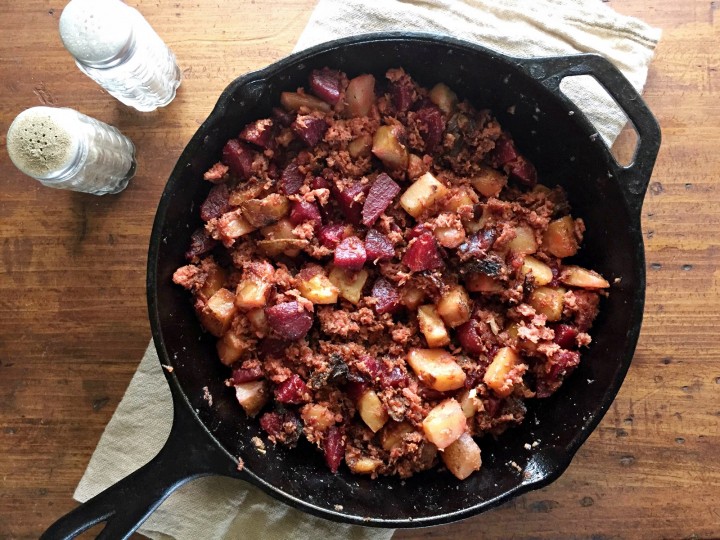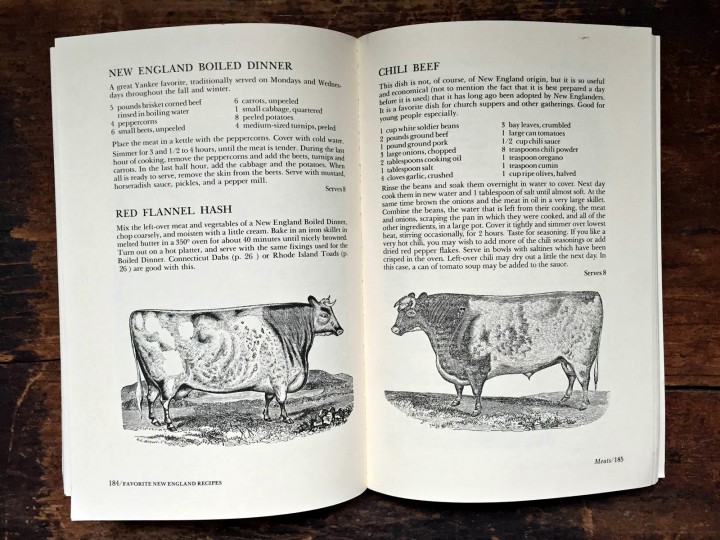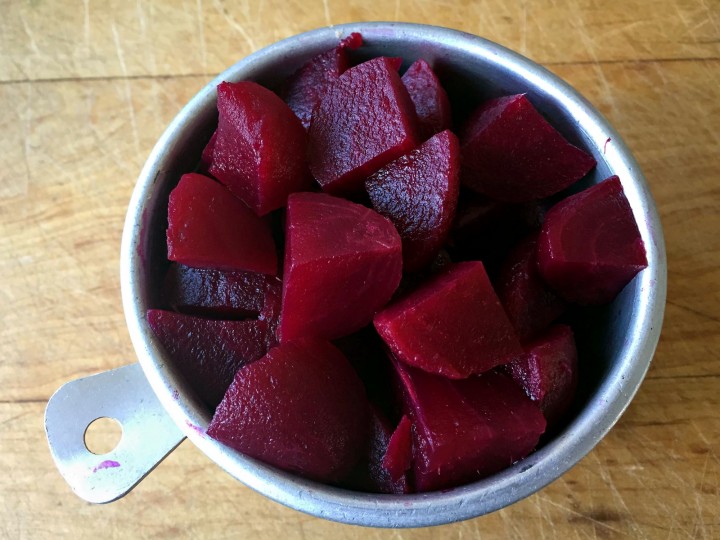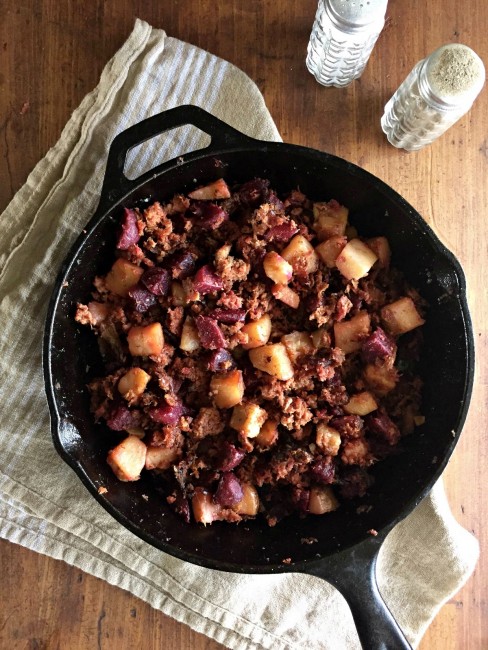Red Flannel Hash | Yankee Recipe Archives (1972) – New England Today
joi
In New England, what do you get when you take a recipe for corned beef hash and swap out some of the potatoes with beets? A savory dish, known as Red Flannel Hash, which is named for the (so-called) flannel-esque patches of red made by the beets. We say crack in a few eggs, and just call it Sunday breakfast.

Red Flannel Hash
Aimee Tucker
I’d always heard about this unique New England hash variation, especially popular on diner menus, but had never made a batch. Fortunately, Yankee Magazine‘s 1972 cookbook, Favorite New England Recipes, had not just a red flannel hash recipe, but also one for the New England boiled dinner needed to produce the necessary leftovers.

Yankee Magazine’s Favorite New England Recipes from 1972. Not sure we’d get away with the phrase “Lady Editors” today!
Aimee Seavey

All good Red Flannel Hash starts with New England Boiled Dinner. Illustrated cows optional, but encouraged.
Aimee Seavey
A traditional boiled dinner — the kind with corned beef, cabbage, and veggies — often has leftovers, and it’s these “next day bits” that make the tastiest hash, be it plain corned beef or red flannel with beets.
Our recipe is a simple one — just leftover corned beef, potatoes, beets, butter, cream, and a few shakes of salt and pepper. Yours, however, may include onions, peppers, cheese, fresh herbs… whatever you like or happen to have on hand.

The “red” in Red Flannel Hash comes from the red color of the beets.
Aimee Seavey
Boiled dinner and the leftover hash (no matter the variety) are both New England comfort food classics, but in a 1991 Yankee food feature by Malabar Hornblower titled “Some of Our Frugal Classics Actually Taste Better the Morning After,” the author gives an extra nod to today’s featured variety:
The early settlers knew how to salt cod and beef, preserving them for use when food was scarce. From corned beef evolved one of New England’s favorite meals-in-one: New England boiled dinner (actually a version of the classic corned beef and cabbage). But there are many who maintain that the only reason to eat a boiled dinner is in order to enjoy the leftovers, chopped up and fried as red flannel hash.

Red Flannel Hash, a New England favorite.
Aimee Seavey
How about you? Are you a fan of red flannel hash? Do you consider it to be as good (or maybe even better?) than the boiled dinner it comes from? Let us know in the comments!
This post was first published in 2015 and has been updated.



